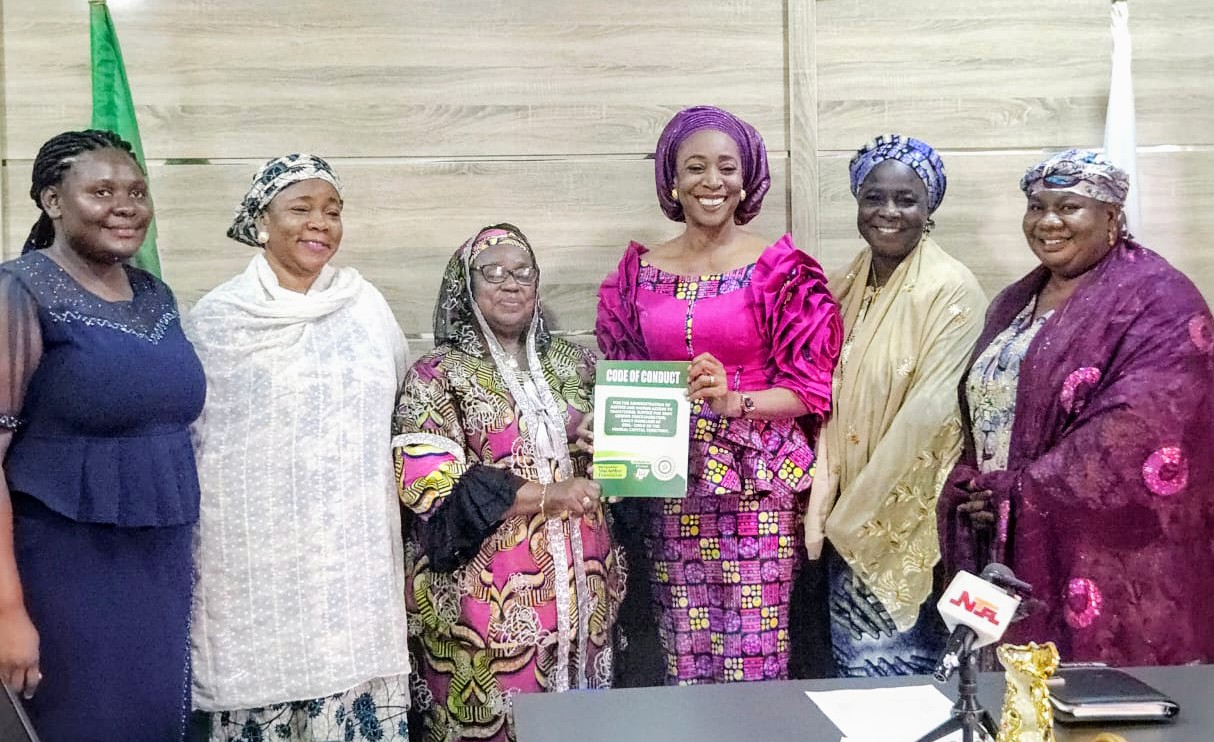Wives of traditional rulers advocate stronger traditional justice system in FCT
By Philip Yatai
Association of Wives of Federal Capital Territory (FCT) Traditional Rulers (WOFCTTRA) have advocated the urgent need to strengthen traditional justice systems in the territory.
The association made the call when its leaders visited the Mandate Secretary, FCT Women Affairs Secretariat, Dr Adedayo Benjamins-Laniyi in Abuja.
The Queen of Abaji Chiefdom, Haiya Hauwa Adamu, who is the President of the association, said that strengthening the traditional justice system was a “matter of profound importance” to FCT communities.
Adamu explained that the move would effectively combat Sexual and Gender-Based Violence (SGBV), gender discrimination, and child marriage among the Original Inhabitants (OIs) of the territory.
She said: ‘As custodians of our cultural heritage and moral values, we, the wives of traditional rulers, have long been the silent witnesses to the challenges faced by women and girls in our grassroots communities.
“Our homes have often served as the first refuge for victims of abuse, yet our voices have remained unheard in the corridors of decision-making.
“Today, we step forward, united and resolute, to advocate for change and work to eradicate incidences of SGBV, gender discrimination and early child marriage in our communities.
“Together, we can forge a society in which every woman and girl in the FCT feels safe, esteemed, and empowered, by harnessing the strength of our traditions to construct a future devoid of violence and discrimination”.
She disclosed MacArthur Foundation, through the Resource Centre for Human Rights and Civic Education (CHRICED), was already elevating the voices of women, youth, and individuals with disabilities within OIs communities.
She added that initiative was ensuring the integration of PwDs into decision-making processes, thereby advancing the political, economic, and cultural rights of the original inhabitants.
The president explained that WOFCTTRA was established to enhance the traditional justice system for effective and inclusive dispute resolution in communities.
This, according to her, will ensure justice delivery on gender discrimination, SGBV and early marriage of the girl child.
“The association was also established to increase awareness and understanding of gender discrimination and SGBV among the OIs in the six area councils in the FCT.
“We are, therefore, acting as actors and ambassadors in the fight against SGBV, gender discrimination and early marriage.
“We are also Intensifying dialogue among the OIs, FCT Administration, area councils and political representatives at the National Assembly on gender discrimination, SGBV and early marriage,” she said.
She commended Benjamins-Laniyi for the exemplary leadership and unwavering commitment to the empowerment of women, serving as a beacon of hope for countless individuals.
She equally hailed the mandate secretary for engaging the wives of traditional leaders in the battle against GBV, describing it as a “robust foundation” for community-oriented interventions.
To achieve more results in their engagement, Adamu solicited technical support and financial resources to conduct training with a view to improve the capacity of members of the association.
She added that the association equally needed resources to conduct periodic awareness campaigns and provide support services for victims of SGBV and other forms of abuse.
“We equally need assistance in monitoring and evaluation to assess the efficacy of traditional justice interventions and ensure accountability,” she said.
Responding, Benjamins-Laniyi, said the women affairs secretariat considered the wives of the traditional leaders as critical stakeholders in the implementation of government policies and programmes at community level.
She added that she was already pioneering the integration of the wives of traditional rulers into the implementation of gender policies and other related laws in the FCT.
According to her, working with the association will not only ensure effective implementation of government policies and programmes at community level but also promote social justice.
She explained that the FCT Women Affairs Secretariat was collaborating with the UN Women, to improve the capacity and advocacy skills of the women.
“This will enable them to speak out and contribute significantly to addressing SGBV and other forms of social ills in their respective communities,” she said. (NAN)
Edited by Abiemwense Moru






